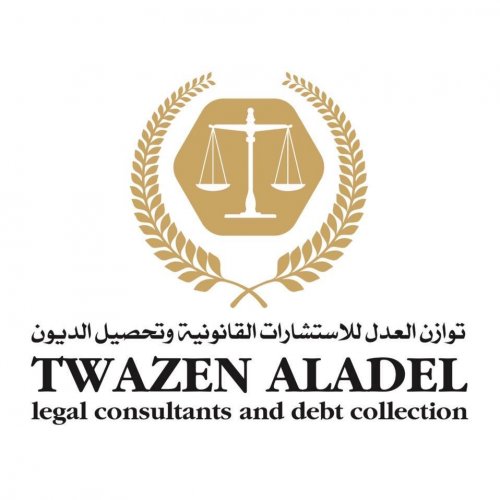Best Civil & Human Rights Lawyers in Dubai
Share your needs with us, get contacted by law firms.
Free. Takes 2 min.
List of the best lawyers in Dubai, United Arab Emirates

Mohamed Eid Al Suwaidi Advocates & Legal Consultants
30 minutes Free ConsultationLegal guides written by Konstantina Zivla:
- INTERPOL Red Notices: When Are They Published?
About Civil & Human Rights Law in Dubai, United Arab Emirates
Civil and Human Rights in Dubai, United Arab Emirates (UAE), are guided by both international agreements and local legislation. The nation's constitution, established in 1971, provides fundamental rights such as equality, freedom from torture, freedom of movement, and freedom of expression, to all residents. However, it's crucial to bear in mind that some aspects may differ significantly from Western norms due to cultural, religious, and legal differences.
Why You May Need a Lawyer
In Dubai, legal assistance is often required when dealing with human rights issues due to the complex nature of laws and regulations. Individuals may need a lawyer in situations involving alleged violations of their civil rights, instances of discrimination or maltreatment, or seeking help to understand their rights and obligations under the law. Expatriates, in particular, might require legal assistance to navigate the local legal system.
Local Laws Overview
For Civil & Human Rights in the UAE, the constitution is the cornerstone. It mandates just and fair treatment for all residents and provides for the preservation of freedom, property, and dignity. However, the UAE also adheres closely to Islamic laws, which may interpret some personal liberties differently from other legal systems. For example, Public Decency Laws in Dubai enforce certain behavioral norms and standards. Understanding these laws is crucial to enjoying one’s civil liberties within the scope of local norms and regulations.
Frequently Asked Questions
1. How is freedom of speech interpreted in Dubai?
While the UAE constitution allows for freedom of speech, there are significant restrictions. Defamation is a punishable offense and criticism of the government, ruling families, or friendly governments could lead to penalties.
2. What are my rights as an expatriate in Dubai?
Expatriates have the same basic rights as UAE nationals, including the rights to safety, freedom from torture, humane treatment, and privacy. However, they must also adhere to UAE's laws and cultural norms.
3. Does Dubai adopt international human rights conventions?
Yes, the UAE has signed and ratified several significant international human rights treaties, although implementation may differ from Western countries due to cultural and religious norms.
4. Can non-citizens work in Dubai?
Yes, non-citizens can work in Dubai, as long as they have a valid residency visa and a work permit from the Ministry of Labor.
5. Is freedom of religion practiced in Dubai?
While Islam is the official religion, the UAE constitution guarantees freedom of religious practice, as long as it doesn't contradict public policy or public morals. Dubai is home to many churches, temples, and other non-Muslim places of worship.
Additional Resources
The UAE Government portal offers information on human rights laws and reporting mechanisms. Human Rights Department in the Ministry of Foreign Affairs, Emirates Association for Human Rights, and Dubai Foundation for Women and Children may also provide assistance with civil rights concerns.
Next Steps
If you need legal assistance in Civil & Human Rights in Dubai, it's recommended to contact a local lawyer or legal agency who specializes in this field. They will be able to provide guidance based on your specific circumstances and ensure your rights are acknowledged and protected under UAE law.
Lawzana helps you find the best lawyers and law firms in Dubai through a curated and pre-screened list of qualified legal professionals. Our platform offers rankings and detailed profiles of attorneys and law firms, allowing you to compare based on practice areas, including Civil & Human Rights, experience, and client feedback.
Each profile includes a description of the firm's areas of practice, client reviews, team members and partners, year of establishment, spoken languages, office locations, contact information, social media presence, and any published articles or resources. Most firms on our platform speak English and are experienced in both local and international legal matters.
Get a quote from top-rated law firms in Dubai, United Arab Emirates — quickly, securely, and without unnecessary hassle.
Disclaimer:
The information provided on this page is for general informational purposes only and does not constitute legal advice. While we strive to ensure the accuracy and relevance of the content, legal information may change over time, and interpretations of the law can vary. You should always consult with a qualified legal professional for advice specific to your situation.
We disclaim all liability for actions taken or not taken based on the content of this page. If you believe any information is incorrect or outdated, please contact us, and we will review and update it where appropriate.
Browse civil & human rights law firms by service in Dubai, United Arab Emirates
Dubai, United Arab Emirates Attorneys in related practice areas.
















